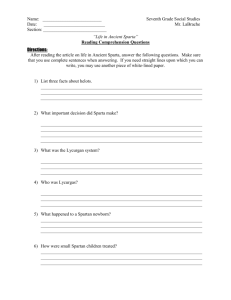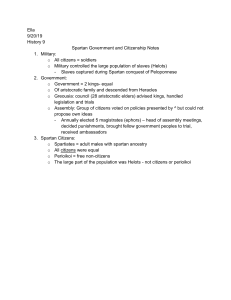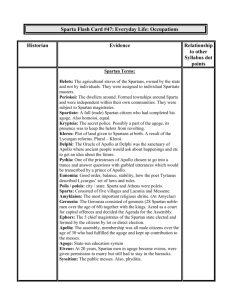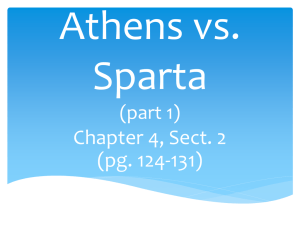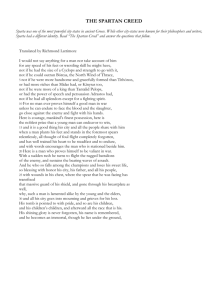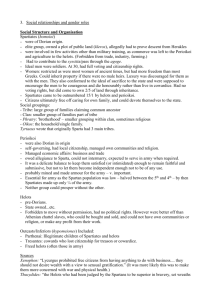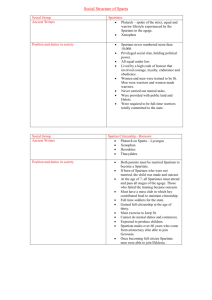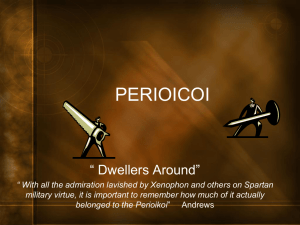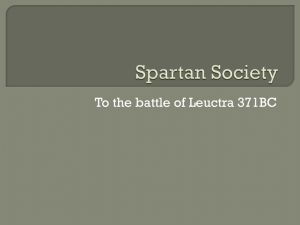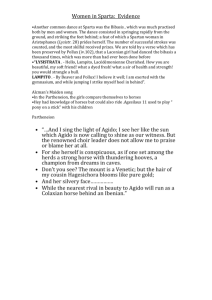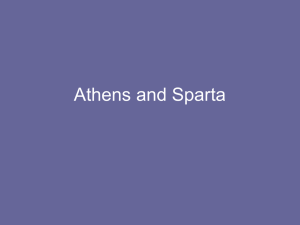Sparta notes Periocei
advertisement
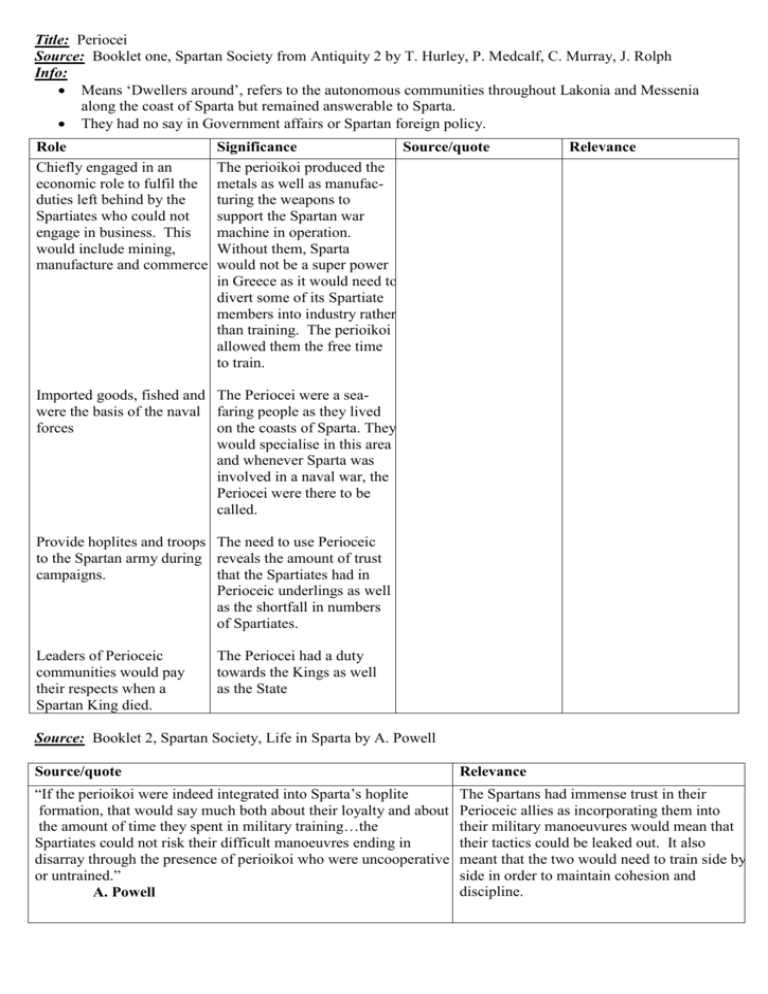
Title: Periocei Source: Booklet one, Spartan Society from Antiquity 2 by T. Hurley, P. Medcalf, C. Murray, J. Rolph Info: Means ‘Dwellers around’, refers to the autonomous communities throughout Lakonia and Messenia along the coast of Sparta but remained answerable to Sparta. They had no say in Government affairs or Spartan foreign policy. Role Chiefly engaged in an economic role to fulfil the duties left behind by the Spartiates who could not engage in business. This would include mining, manufacture and commerce Significance Source/quote The perioikoi produced the metals as well as manufacturing the weapons to support the Spartan war machine in operation. Without them, Sparta would not be a super power in Greece as it would need to divert some of its Spartiate members into industry rather than training. The perioikoi allowed them the free time to train. Relevance Imported goods, fished and The Periocei were a seawere the basis of the naval faring people as they lived forces on the coasts of Sparta. They would specialise in this area and whenever Sparta was involved in a naval war, the Periocei were there to be called. Provide hoplites and troops The need to use Perioceic to the Spartan army during reveals the amount of trust campaigns. that the Spartiates had in Perioceic underlings as well as the shortfall in numbers of Spartiates. Leaders of Perioceic communities would pay their respects when a Spartan King died. The Periocei had a duty towards the Kings as well as the State Source: Booklet 2, Spartan Society, Life in Sparta by A. Powell Source/quote Relevance “If the perioikoi were indeed integrated into Sparta’s hoplite formation, that would say much both about their loyalty and about the amount of time they spent in military training…the Spartiates could not risk their difficult manoeuvres ending in disarray through the presence of perioikoi who were uncooperative or untrained.” A. Powell The Spartans had immense trust in their Perioceic allies as incorporating them into their military manoeuvures would mean that their tactics could be leaked out. It also meant that the two would need to train side by side in order to maintain cohesion and discipline. Source: Booklet 6, Plutarch, Life of Lycurgus Source/quote Relevance “Once few, if any, Spartiates practised a manual craft, the commercial and economic role of the Periocei must have become a very important one.” Plutarch The need for Periocei was essential in order to maintain the Lycurgan reforms. With Spartiates unable to participate in manual craft, and the helots busy on the land to susceptible of revolting, the Periocei were the last resort. Plutarch’s statement is correct and the evidence of this statement being true is undeniable as Spartiates were to busy training to produce weapons and needed this 2nd party contribution. Source: Spartan Society, The Spartans by P. Cartledge Source/Quote Relevance Perioceic communities were governed by unequal treaties committing them “to follow the Spartans wherever they led” The Periocei were governed by the Spartans due to their unfair placement in the social order. Source: Booklet 8, Ancient Spartan Society, Perioceic Society by G. Shipley Source/Quote “Periocei can be seen not so much as one of a large oppressed minority (or even a majority) in Lakedaimon, but as collaborators with the Spartiate ruling class and shearers in the profits of the system.” Shipley Relevance This statement challenges the idea that the Periocei as mere pawns to the Spartiate class, but near equals who benefited from each others presence.

